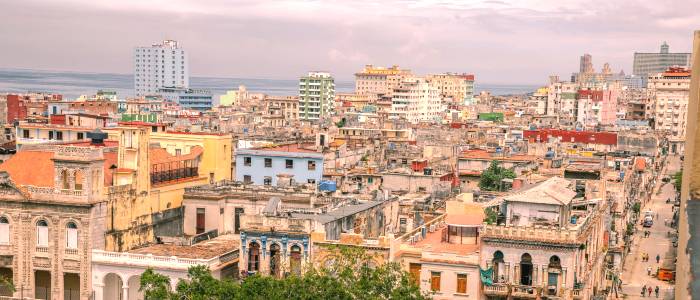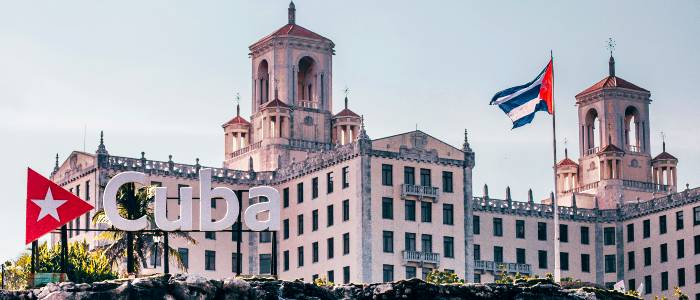
Contents
▼
Contents
▼Planning a trip to Cuba can raise questions if you have a criminal record, especially regarding entry rules and the likelihood of facing travel restrictions.
Cuba is known for its relaxed entry requirements, but understanding the nuances and preparing accordingly can help ensure a smooth travel experience.
Is Cuba a Country That Allows Travelers with a Criminal Record?
In general, Cuba is lenient when it comes to entry for travelers with criminal records. The country is known for its openness to tourism and does not explicitly deny entry based on a past record.
Unlike some destinations that routinely screen for criminal histories at the border, Cuba has limited access to foreign criminal databases, which reduces the chance of your record affecting entry.
Most travelers, especially tourists, need only a passport, a tourist and a Cuba Dviajeros form, and Cuban immigration generally focuses on welcoming visitors rather than scrutinizing their legal backgrounds.
Here’s a brief look at what you need to know before you arrive:
- No criminal background check for tourist visits: Entering Cuba as a tourist doesn’t typically involve any background checks or questions about criminal history.
- Documentation requirements: Bring a valid passport, entry form and tourist card, obtainable via your airline or a Cuban consulate.
- Honesty if asked: Although rare, if asked about your background by Cuban officials, it’s best to be truthful. Clear answers can help avoid complications and ensure a smooth entry.
Access to International Crime Databases
While countries like the United States and Canada often share information through systems like INTERPOL, Cuba generally does not participate in these exchanges. Here’s what this means for travelers:
Past convictions unlikely to be flagged
Cuban immigration does not routinely scan for criminal history through shared databases. Therefore, minor offenses or past convictions are unlikely to be flagged at the border.
Exceptions for serious crimes
If a traveler has an international warrant or has been involved in severe criminal activities flagged through INTERPOL, Cuban authorities may receive an alert.
In these rare cases, entry could be denied. However, minor charges are generally not tracked, so most travelers will not face scrutiny.
Nevertheless, being prepared with the necessary documents and information is still necessary to avoid problems with immigration when you arrive.
Countries Not Allowed to Enter Cuba with a Criminal Record
While Cuba is generally open to travelers with criminal records, there are some specific exceptions.
Individuals from certain countries may face restrictions or additional scrutiny, especially if they are citizens of nations with limited diplomatic relations with Cuba.
This may include:
- U.S. travelers: Due to specific U.S.-Cuba travel restrictions, U.S. citizens with a criminal record may face additional challenges, largely stemming from U.S. government policies rather than Cuban rules.
- Conflict zones: Travelers from countries with active conflicts or limited diplomatic ties to Cuba might encounter stricter entry processes, which are typically due to political concerns rather than individual criminal records.
- Security concerns: In rare cases, countries with entry restrictions on Cuba might prompt more rigorous checks by Cuban authorities. However, most tourists with a record experience no additional obstacles.
Generally, travelers from Canada, the European Union, and many other regions experience smooth entry processes even with a record, making Cuba an accessible destination.
If I Have Dual Cuban Nationality, Can I Enter the Country with a Criminal Record?
Dual nationals (Cuban-Canadian, Cuban-American, etc.) may face a slightly different process when entering Cuba with a criminal record.
Here are a couple points to consider:
Dual nationals treated as Cuban citizens
When entering Cuba, dual nationals are often treated as Cuban citizens rather than foreign visitors. This distinction can impact entry requirements, as Cuban citizens are subject to Cuban laws, which may differ from those applied to tourists.
Legal obligations for dual citizens
Dual nationals should carry both passports when entering and exiting Cuba, as this can help make the entry process easier.
However, individuals with a Cuban passport may be subject to Cuban legal procedures, including checks related to criminal records.
Tips for Traveling to Cuba with a Criminal Record
To further ensure a smooth entry into Cuba, travelers with a criminal record can take additional precautions to prevent any surprises upon arrival:
- Secure travel Insurance: Travel insurance is required for all travelers entering Cuba. Make sure to have proof of insurance in case officials request it upon arrival.
- Understand Cuban customs regulations: Familiarize yourself with Cuba’s customs regulations before you travel. Avoid bringing prohibited items, such as certain electronics, firearms, or excessive quantities of cash.
- Consult legal experts if needed: If you have concerns about entering Cuba with a criminal record, consulting legal experts familiar with Cuban immigration laws can help clarify entry requirements and ensure peace of mind before travel.
For most travelers, planning ahead and understanding the entry requirements can ease travel concerns and guarantee a pleasant trip. Especially if you have a prior criminal record.


